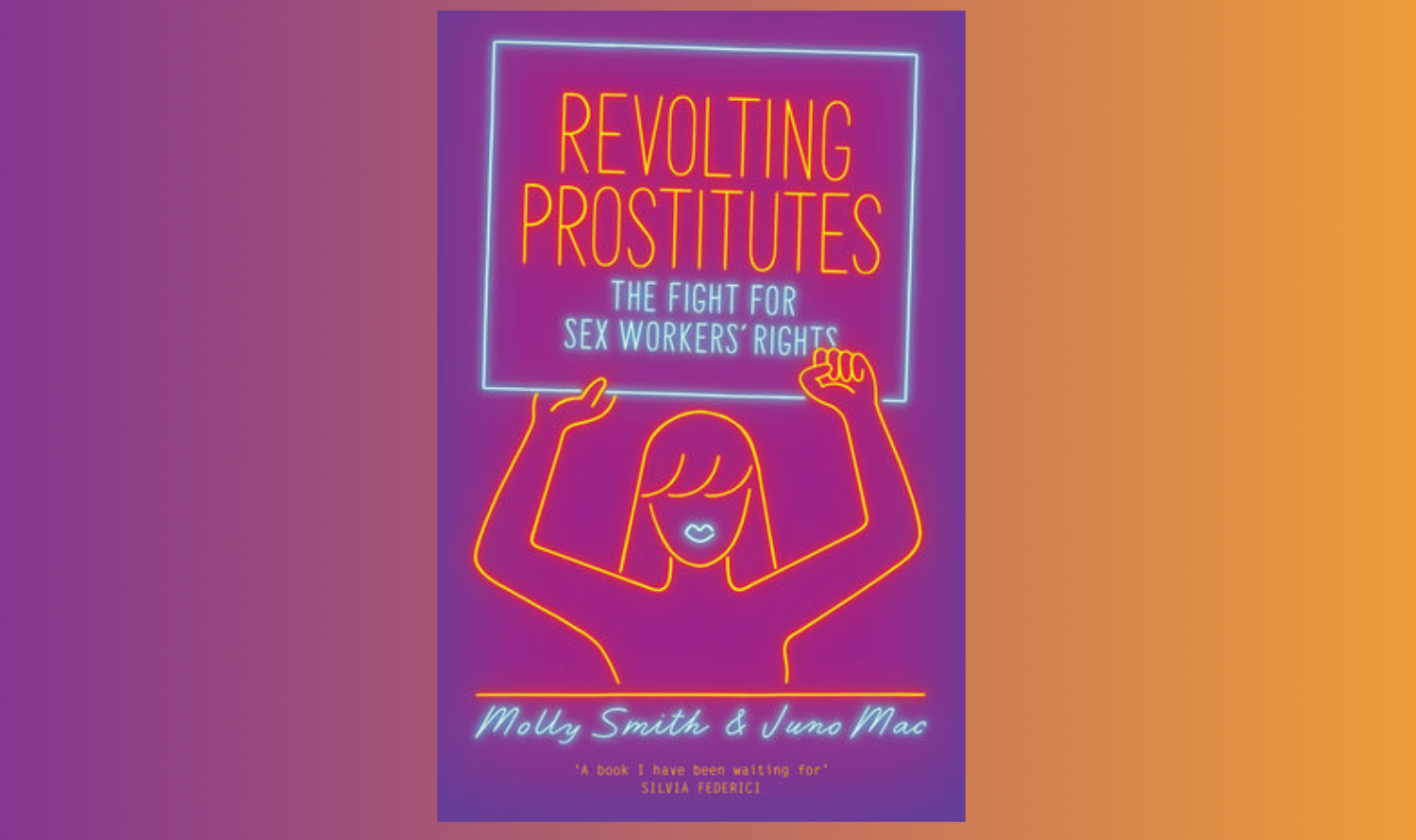Unlike many books written about sex work, Revolting Prostitutes: The Fight for Sex Workers’ Rights is actually written by sex workers whose lived experiences are reflected throughout the pages. By critically assessing who has the safety and resources to speak out, to be heard and visible, the authors Molly Smith and Juno Mac reveal the intricacies of privilege and oppression within sex work. This book offers a nuanced explanation of what it means to be a sex worker, critical analyses of carceral systems, and a breakdown of the feminist and political debates around sex work. If you are looking for a feel-good reading experience, this isn’t that. However, if you feel ready to chew on the hard-to-swallow truths about the realities of selling sex, then this book offers a lot of food for thought.
In the introduction, you will find that the authors’ primary concern is the “safety and survival of people who sell sex” (p. 3). They clearly state that the sex work industry is gendered, sexist, and misogynist – a point that is often overlooked by sex-positive activists, advocating that sex work is purely liberating and empowering. While sex work can be both of those things, the authors claim that “the harms that people experience in sex work – such as assault, exploitation, arrest, incarceration, eviction, and deportation – are the focus of this book” (p. 4). By focusing on these harms and tracing their lineages to the ongoing histories of colonialism, capitalism, patriarchy, and more, this book delicately situates the histories of sex work alongside the diverse realities of sex work today.
This book offers a nuanced explanation of what it means to be a sex worker...
In the first half of the book, the authors break down Sex, Work, and Borders, and how these concepts relate to feminist activism, social stigmas, and the regulation of sex work by governments. Starting with Sex, they go into the politics of penetration and how stigma around sex undermines mainstream understandings of sex work as work. Moving onto Work, the authors lay out the inherent disadvantages of women under capitalism and situate sex work as what it often is: a means of survival. By emphasizing how the economic system of capitalism fails to offer viable livelihoods to vulnerable and marginalized people, this chapter locates “the problem not in sex but in work” (p. 53). The book then builds upon the problem of work in Borders, by making clear that “borders make people vulnerable” (p. 64). They offer examples of how borders create undocumented workers who cannot advocate for their rights, as well as creating the conditions for sex and other labor trafficking. Each of these chapters builds upon the other, making clear the inherent interconnectedness of sex, work, and borders in the struggle for sex worker rights. By taking the time to really investigate the intricacies of these concepts, the authors effectively lay the foundation for the next half of the book.
The second half gets into the nitty-gritty details of how sex work is regulated and (de)criminalized throughout the world. Broken down into 5 chapters, this part of the book takes the reader into a well-researched deep dive of the differences and similarities between the various major governmental approaches to sex work. These are Partial Criminalization, Full Criminalization, the Nordic Model (criminalizing buyers of sex while decriminalizing sellers), Regulationism, and Full Decriminalization. In each model, the authors highlight how protections and rights awarded to certain sex workers often result in the further oppression of vulnerable sex workers, namely those who are undocumented, poor, people of color, and LGBTQI+.
Each of these chapters builds upon the other, making clear the inherent interconnectedness of sex, work, and borders in the struggle for sex worker rights.
This critical approach to police states, carceral systems, and immigration control makes clear to the reader that none of these aforementioned models fully protect sex workers. The heart of their argument is this: the most vulnerable people will always be made more vulnerable by any system governed by the police and borders. While the world still has a long way to go, the authors do advocate that the least harmful of all these systems is the model of full decriminalization, which makes sex workers “right now and tomorrow safer while they are doing what they need to survive. That is profoundly worthwhile” (p. 207). This book does not offer a simple, magical solution to the problems sex workers face. Rather, it untangles the knots of systemic oppressions and lays bare the realities of how our societies and governing bodies fail us time and time again.
An aspect of the book that I deeply appreciate is how the authors put into perspective what is not “natural” but is often assumed to be, such as the existence of police, border control, etc They write, “the institutions of policing and borders may seem natural or inevitable, but they are recent inventions. Their modern forms date back to only the nineteenth century, and a look at their history illuminates their present” (p. 15). By making apparent how these institutions are intrinsically linked to the violence of colonialism, slavery, etc, they guide the reader into an intersectional understanding of how the struggles of sex workers are inherently interconnected with matters of racism, migration, sexism, classism, and so on. At the heart of this book is a call for solidarity, making clear the interconnectedness of our struggles and the histories of systemic oppressions that link us together. The authors write, “the most potent source of untapped power for sex workers is not sexual liberation, social rebellion, or even money, but solidarity” (p. 219). This call for solidarity is the thread that weaves this book together.
At the heart of this book is a call for solidarity, making clear the interconnectedness of our struggles and the histories of systemic oppressions that link us together.
So, if you’re in the mood for a simple, feel-good reading experience, this book will not provide that. However, if you believe that knowledge is power, reading this book may indeed be a radicalizing, educational, and energizing experience for any sex worker or ally who wishes to be in solidarity with sex workers throughout the world and the fight for sex worker’s rights.
Are you a sex worker with a story, opinion, news, or tips to share? We'd love to hear from you!
We started the tryst.link sex worker blog to help amplify those who aren't handed the mic and bring attention to the issues ya'll care about the most. Got a tale to tell? 👇☂️✨





